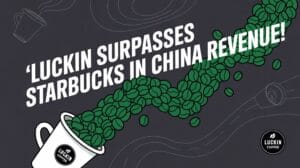How has the rise of the “matcha generation” reshaped the coffee industry? This new group of young consumers is shifting their preferences toward healthier lifestyles, making matcha—a finely ground green tea—very popular. As the matcha appeal grows, it brings tough competition for coffee giants like Costa Coffee.
Costa holds a significant market share in the UK but has begun to struggle against newer trends and tastes. Since being bought by Coca-Cola in 2019, its revenue has dropped, while competitors have taken advantage of this shift to gain ground.
Coffee competition has intensified. Younger consumers are seeking not just coffee but an experience, leaning towards specialty beverages like matcha and other teas. This has put pressure on traditional coffee shops. Costa’s mass-market approach isn’t attracting the younger audience that craves something unique or artisanal. As more consumers turn to independent cafés that offer these trendy drinks, big brands like Costa risk losing relevance.
Some reports show that Costa’s revenue isn’t just stagnating; it’s declining, particularly in ready-to-drink options, which have seen a significant drop in sales. The company’s inability to adapt quickly to the growing popularity of matcha and other healthier alternatives shows a lack of responsiveness to changing consumer preferences. Consumers are not just looking for caffeine anymore; they’re focusing on health benefits and unique flavors.
While Costa holds a 38.3% market share in the UK coffee outlet count, its rivals like Starbucks and Greggs are evolving with the demands of the market. Starbucks offers a variety of non-coffee drinks, while Greggs focuses on convenience and affordable options.
As the matcha generation continues to rise, with its focus on wellness and unique beverages, Costa may find itself needing to rethink its strategy to stay competitive in a changing landscape. The challenge is clear: adapt or be left behind.





